Blog
Get the inside scoop about life at U-M and applying to Michigan from current student bloggers, Admissions staff, and guest faculty writers.
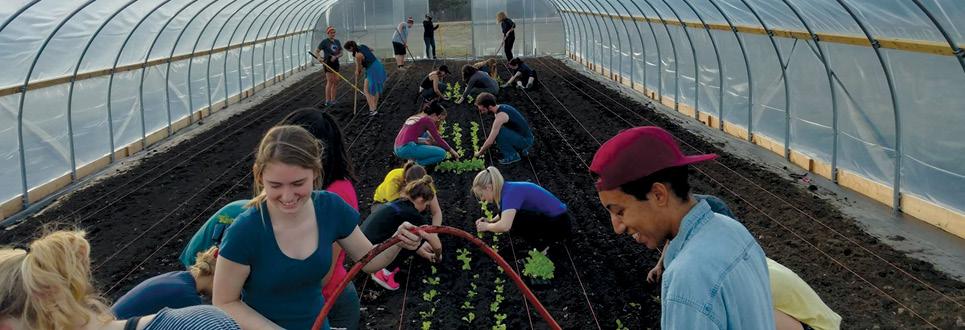
Get the inside scoop about life at U-M and applying to Michigan from current student bloggers, Admissions staff, and guest faculty writers.

I share my main reflections and experiences over each of my four years.

“How does it feel to be done?”
Every graduating student around this time of the year is asked this question. I usually return it with a non-answer like “I don’t know how to feel” or “it doesn’t feel like I’m really done.” Both of these statements are true. I don’t know how I feel about it. And I’m not technically done with the semester (the final finals season is a recipe for procrastination). But part of my ambiguous response stems from the fact that answering the question would require reflecting about what comes next.
The end of college is a weird milestone because next steps are more ambiguous than say, graduating kindergarten. For the most part, K-12 in the United States is built sequentially, where each year is designed to reinforce and add complexity to the previous year. But rather than go down an existential ramble about how bizarre it is to enter adulthood, I’ll use this blog to share some of my main reflections and experiences over each of my four years at UMich.
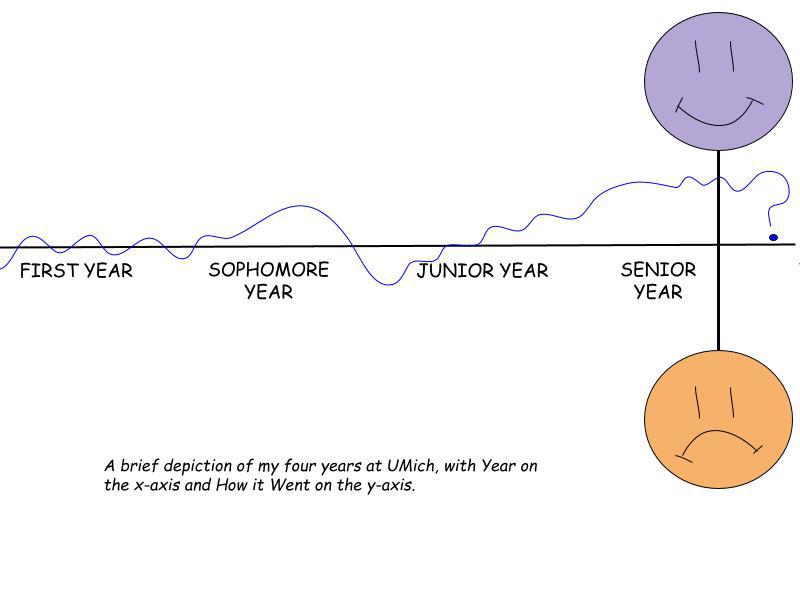
First Year: Bland Beginnings
I began my first year eager for new experiences like most people do when they arrive on campus. I joined the Residential College since I was interested in learning Spanish and knew they offered intensive language courses. It also guaranteed a housing placement in East Quad, which is one of the newer dorms on campus.
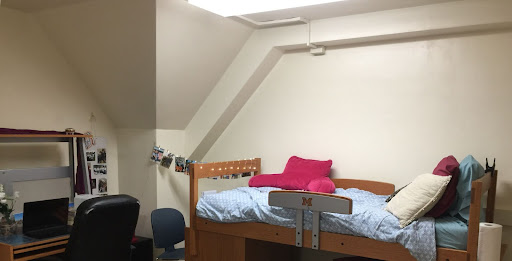
I went the route of rooming blind, as most people recommend. My roommate's situation was as close to neutral as the word entails. We probably exchanged a few minutes worth of cordial dialog the entire year, but for the most part kept to ourselves.
I had a minimal social life during my first year of undergrad. As a result, I spent most of my time engaging in the few activities that are socially acceptable to do on your own — studying, working out, and eating (although eating alone in the dining hall felt like an alien activity at times). Every morning, I would go to the Central Campus Recreation Building (CCRB) and return to East Quad for dining hall breakfast potatoes before my 9 a.m. Spanish class. After classes, I’d alternate between the UGLI (Shapiro Library) second floor and the School of Social Work (SSW) study areas every other day. Occasionally, I’d indulge in an Espresso Royale coffee ($1.50 if you brought in your own mug — a steal in Ann Arbor even in pre-inflation times). I also started blogging for U-M Admissions. (Throwback to the #FroshFiles. My personal favorite products from the year are included below.)
Outside of the few acquaintances I made, my main form of social interaction was attending biweekly meetings at the Program of Intergroup Relations (IGR), where I was a facilitator for their social justice workshop program.
Looking back, I was not unhappy or happy. The whole year felt overwhelmingly neutral. If anything, I was bored. I’m immensely grateful for that. My main lesson from first-year was reconciling that there was nothing wrong with going through your day-to-day alone. But it goes both ways — most people could either use more social interactions in their day or more time on their own. I learned my first year that I had gotten so comfortable on my own that I stopped willingly going out of my way to meet people. Sophomore year I decided to change things up.
Sophomore Year: Declaring Things
By the end of first year, I decided I wanted to live off-campus. I didn’t personally find a community within the Residential College or East Quad, and wanted more immediate access to food (although the dining hall breakfast potatoes were missed). I signed a lease the year before for an off-campus apartment with a few girls I met through mutual friends. It was similar to going into a roommate situation at random, except we met before signing on to live with one another for a year.
If there’s a piece of advice I’d impart to people that I learned sophomore year, it’s that the most ideal housing scenarios unfold from living with people you don’t know well, but that you’ve vibe-checked through an in-person meeting or text. You don’t risk the loss of a friendship by living with someone you know well, but you also don’t deal with the risks that come with moving in with someone completely blind.
That year, I got involved in the Michigan Refugee Assistance Program (MRAP), a refugee justice nonprofit and student organization. I also became more literate in the field of exercise science and constantly consumed fitness content, articles, and podcasts in my free time. I signed up for a weekly hip-hop class. Between MRAP, working for IGR, and a slightly more rigorous course load, I was slowly solving my boredom issue. Living with three other girls meant I also spent more of my time with other people than before. It didn’t magically solve my lack of social life overnight, but it introduced me to a more social version of college.
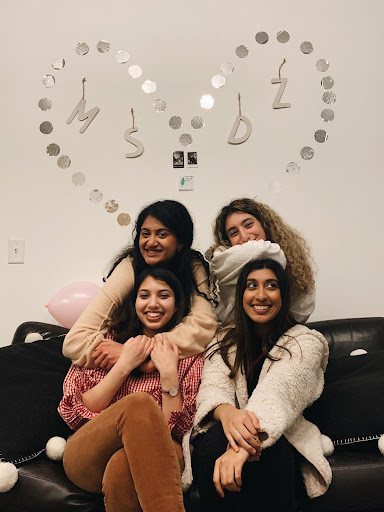
My sophomore year I also declared my major, organizational studies, which I’ve written about a few times. I also wrote about a bunch of other happenings my sophomore year, such as:
Either a day or a week after my organizational studies orientation, classes were moved online in response to the pandemic. The second half of winter semester, I functioned robotically: I did whatever my Google Calendar told me to do. I bounced between feeling cheated out of my sophomore year and lucky that I at least had 1.75 “normal” semesters.
All in all, sophomore year felt inconsequential — a woulda-shoulda-coulda been of a year in the sense I felt if I just had a few more months in-person, I could have solidified my footing on campus.
Junior Year: How Did We Get Here Already?
The first day of junior year, I logged onto my first Zoom class with a sense of familiarity learned through the few weeks of online classes the previous semester. I went through my normal morning routine, but instead of stepping outside for my usual walk between downtown Ann Arbor and Central Campus, I walked the foot that separated my living room from my bedroom.
I spent most of the year in my living room in Ann Arbor, having resigned my lease in October of sophomore year (the way classic Ann Arbor housing worked by pressuring students to resign months before the subsequent school year begins).
Most of class small talk was replaced with speculations about COVID and trading lockdown experiences. Classes had resumed, but our normal lives had not. The normal problems people face in undergrad (FOMO — fear of missing out, class rigor, imposter syndrome, etc.) became overshadowed by the pandemic. Outside of classes, extracurriculars turned into Zoom meetings or were outright canceled.
My junior year had a lot of highlights, too. Even though classes were online, I experienced a renewed interest in learning, since classes for my major program begin in the fall of junior year. I met people in my cohort, and we endured remote classes together. I found workout buddies, and we tried to stay active amidst gym limitations. I rediscovered the Arb and became an amateur runner. I completed a months-long process of paperwork, bylaws revision, and meetings to transition MRAP into a nonprofit. I also experienced Ramadan (an annual month of fasting from dawn to sunset observed by Muslims) on campus for the first time. I completed another year of blogs for Admissions, including:
I can’t really pinpoint a main takeaway from junior year. It felt like an extension of the previous year. (COVID 2.0 had that effect.) As I’m not partial to giving advice just to have something to say, I’ll leave it with that.
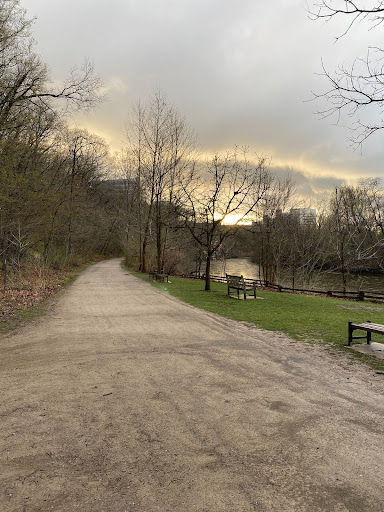
Senior Year: A Year of “First Lasts”
Senior year brought the promise of a close-to-normal campus experience. We resumed mainly in-person activities. Seeing people in-person for the first time that I had previously only known through Zoom felt like repeating the awkward, intimate first week of the first year when you’re constantly tasked with introducing yourself to people.
In August, I moved into a different off-campus location, as my previous roommates had graduated. For a third time, I committed to a random housing situation where I didn’t know anyone going into it. But I entered the situation mostly excited that I didn’t have to share a room for the first time in undergrad (no offense, ex-roomies). And as a bonus to having my own room, my housemates ended up being unproblematic, too! (“Unproblematic” is a very underwhelming way to describe some of the best people I know, but it’s not as entertaining to be sincere.)
I enrolled in just three classes for the fall. I learned the value of unwinding. I watched a lot of TV, read a few books (read: 2 or 3), let my workout regimen take a back seat, and learned how to cook food outside of butter pasta and beans. I took advantage of my lighter schedule to pursue internship opportunities. My motto for senior year wasn’t necessarily about doing less or more, but prioritizing the time I had left on campus with people and work that were worth my time. Of course, I kept writing for Admissions.
I also started personal training clients through Rec Sports and finally applied the exercise science knowledge I had absorbed during college. Learning how to train other people taught me about how when it came to my own workouts, I didn’t have to adopt an all-or-nothing mentality.
I stopped chasing friend groups, or the idea that in order to have a fun college experience you need to have a group of friends who are all friends with one another, and started appreciating the friends I had.
At one point, I tried out for the women’s club ice hockey team and skated in full gear for the first time in three years. I didn’t make the team, but reminded myself that senior year doesn’t just have to revolve around a series of lasts, but can include firsts. (See below a snapshot of my first time trying Comet Coffee this month, which I can easily now say is my favorite coffee shop in Ann Arbor.)
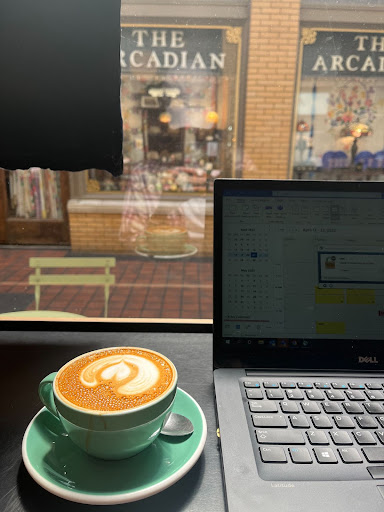
In the same vein of firsts, I had my first session through CAPS this semester. While I didn’t think I went long enough to evaluate the benefits of therapy, I’m encouraged that I tried it out. At the very least, it forced me to slow down and prioritize my wellness during a time when the semester was ramping up.
Senior year was a year of what I’ll call “first lasts” — of doing things I’ve never done before and will never do again as an undergraduate student.
While I’m excited and unsure about what comes next, I’m currently savoring the last week of four memorable years at the University of Michigan.

Maryam Masood (she/her) is a senior in the College of Literature, Science, and the Arts majoring in Organizational Studies. During the year, she keeps busy managing the Michigan Refugee Assistance Program and working as a trainer at Rec Sports. Outside of class and work, she can most likely be found making another cup of coffee, procrastinating at the CCRB, or rewatching Kim's Convenience on Netflix.